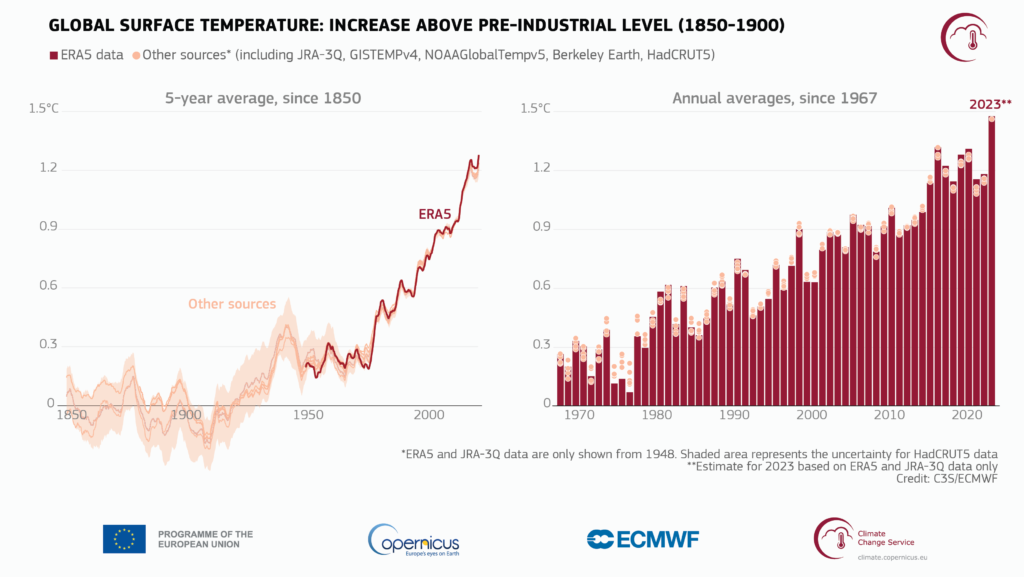The Copernicus Climate Change Service (C3S), implemented by the European Centre for Medium-Range Weather Forecasts on behalf of the European Commission, has confirmed 2023 as the hottest year in history, revealing that global temperature rose by 1.48°C above pre-industrial times. The agency calculated that the global average temperature for 2023 was approximately one-sixth of a degree Celsius warmer than the previous record set in 2016, with an average temperature of 14.98°C.
Throughout the year, C3S monitored crucial climate indicators, documenting unprecedented conditions like the hottest month ever recorded and daily global temperature averages briefly surpassing pre-industrial levels by more than 2°C; from June onwards, these extraordinary temperatures propelled 2023 to claim the title of the warmest year on record, significantly surpassing the previous record-holder, 2016, and Deputy Director of the Copernicus Climate Change Service Samantha Burgess declares, “2023 was an extraordinary year with climate records falling one after another; not only is it the warmest on record, but it also marks the first year with all days surpassing 1°C warmer than the pre-industrial period, likely exceeding temperatures of any period in at least the last 100,000 years.”

While future climate projections present even more severe consequences, the recent events illustrate the gravity of the situation. Last year witnessed heatwaves sweeping through Europe, North America, and China, accompanied by devastating wildfires. Africa and Australia grappled with prolonged droughts and torrential rains. Wildfires and droughts devastated the Amazon rainforest in Latin America.
Scientists point to escalating greenhouse gas emissions from coal, oil, and natural gas combustion as the primary driver. In addition, the natural El Niño phenomenon, oscillations in the Arctic, Southern, and Indian Oceans, heightened solar activity also contributed for making 2023 the hottest year on record. Copernicus records, dating back to 1940, reveal an alarming trend. Further evidence from tree rings and ice cores suggests that this may be the warmest period on Earth in over 100,000 years. Scientists share deep concerns about losing the 1.5°C target and emphasize the need to double global efforts for attaining the goal. The major warning from climate scientists is that without concrete action, the current trend suggests the record-breaking year of 2023 may soon be remembered as a comparatively cool year.
Source (text and image): The Copernicus Programme
Cover picture: Mike Newbry – unsplash.com



